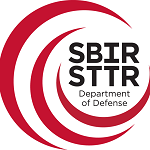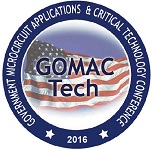Jonathan Graf of Graf Research along with co-presenter Dale Reese of Idaho Scientific will be giving an invited lecture to Virginia Tech's Center for Embedded Systems for Critical Applications (CESCA). The topic is "FPGA MPSoC Security: Design and Runtime." Come on out and hear us! Details below:
FPGA MPSoC Security: Design and Runtime
Jonathan Graf, Founder, Graf Research; Dale Reese, Founder and Chief Scientist, Idaho Scientific
2:30pm - 3:30pm on April 15, 2016 (Friday) at Whittemore Hall 457
Abstract: An emerging class of Field Programmable Gate Array (FPGA) – the Multi-Processor System on Chip (MPSoC) – holds enormous promise for novel processing architectures in a variety of domains. Within the context of high-security systems, the same-die close coupling of heterogeneous processing structures with hardened security resources is of particular interest. Modern FPGA MPSoCs provide not only programmable FPGA fabric, ARM CPUs, graphics processor units (GPUs), and digital signal processors (DSPs) but also cryptographic accelerators, physically unclonable functions (PUFs), and hardware random number generators (HRNGs). This pairing of processing and security resources raises the possibility of using them to create tightly integrated, custom secure processors for emerging networked applications that demand the highest security standards. FPGA MPSoCs hold the potential of revolutionizing the security posture for high-security Internet of Things (IoT) applications such as autonomous vehicles, intelligent energy grid devices, home and industrial automation, cyber-physical systems – and even the datacenter.
In this seminar, Jonathan Graf (Graf Research) and Dale Reese (Idaho Scientific) will introduce the variety of embedded computing security disciplines that meet within the confines of FPGA MPSoCs. Security must be built into these devices from the moment they are first designed, all the way through their supply chains, during the development of each piece of software and firmware, and throughout every runtime operation of each disparate processing structure. Collectively, this makes the FPGA MPSoC an exciting new device class with exceptional opportunities for new embedded computing security innovation.


















